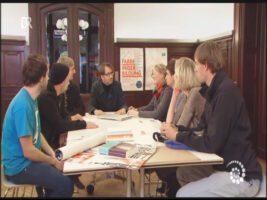About 100 years ago, with the development of medical conditions, it became possible for the first time to observe a meaningful number of people born blind acquiring sight. While all patients were able to describe the completely new sensory sensations as color and light immediately after the operation, they only saw a diffuse stimulus field, which they often localized directly in their eyes that were functional for the first time. They lacked the memory reference of the visual space for the interpretation, which is why it was impossible for them to understand the meaning and action structure of the color and light signs. They didn’t know what they could use their eyes for. The images used to test their vision therefore seemed completely meaningless to them.
The resignation of the attending physicians at the lack of interest and confusion of their patients can be traced back to their ignorance of brain functions. Today, however, it can no longer be justified if the development of children’s visual ability, visual imagination and representation skills continues to be largely based on ready-made images. It is not enough for the images to be shown in film sequences or explained competently in language. In this respect, it is like books, whose characters only convey something to us to the extent that we can relate them to our lived experience.
On the other hand, pictures and films are just as indispensable as books for the development of spatial-visual skills, intelligence and participation in modern societies. However, we must first learn to see like a language skill before we can tap into the information potential of the natural and socio-cultural environment. We need a permanent response to our linguistic utterances, regardless of whether they are descriptive or verbal, so that the learning process can develop.
No one can explain this to us as clearly as blind children, who still have to learn to see after eye surgery. Unlike us, however, they are constantly aware of how much they rely on all their senses and independent experience.


